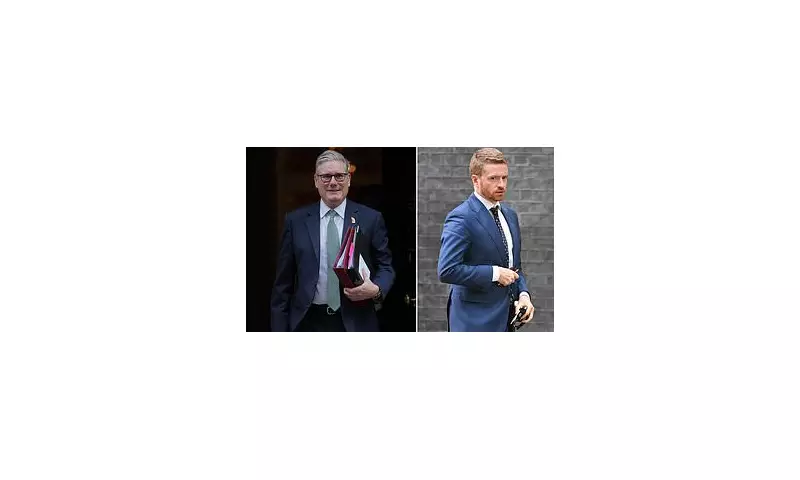
Prime Minister Keir Starmer has moved to protect his controversial chief of staff, Morgan McSweeney, amidst escalating demands for his dismissal over alleged 'toxic' briefings targeting Labour MPs and Cabinet members.
Investigation Shut Down Amid Denials
On Thursday, Sir Keir cleared Mr McSweeney without initiating any formal investigation following accusations that his aide was central to a disastrous briefing operation against Health Secretary Wes Streeting. This move plunged the Labour government into significant internal turmoil.
Downing Street firmly rejected characterisations of the decision as a 'whitewash'. A Number 10 spokesperson stated that senior staff had personally assured the Prime Minister that none of them were involved in the briefing war, which saw Labour MPs branded as 'feral'. Sir Keir confirmed he was content to take them at their word.
Mounting Pressure and Contingency Plans
Despite the Prime Minister's backing, calls for Mr McSweeney's removal continued to intensify. Former Labour Cabinet minister Lord Blunkett declared it was time for Sir Keir to 'find another role' for the man credited with masterminding Labour's landslide election victory last year.
One Labour source revealed that Downing Street was already drawing up contingency plans for Mr McSweeney's potential departure should the pressure become intolerable. The source suggested a face-saving move to a senior party role, potentially as general secretary, was being considered.
However, Sir Keir himself insisted he retained 'full confidence' in his top aide. This sentiment was echoed by former Labour communications chief Tom Baldwin, who described Mr McSweeney as 'very important' to the Prime Minister, adding, 'I expect him to stay.'
Leadership Rivalry and a 'Toxic Culture'
The controversy erupted from briefings widely attributed to Number 10 sources, which targeted Mr Streeting, a figure seen by many as a potential leadership rival to Sir Keir. The briefings allegedly accused the ambitious Health Secretary of plotting, with one source claiming he had '50 frontbenchers willing to stand down' if the upcoming November 26 Budget landed poorly and the Prime Minister did not step aside.
Mr Streeting vehemently denied any plotting, labelling the attempt to 'kneecap' him as 'self-defeating and self-destructive' for the government. He issued a stark warning about a 'toxic culture' developing within Number 10.
While Labour Party chairman Anna Turley and Chancellor Rachel Reeves initially told reporters an investigation had been launched, Downing Street swiftly shut down this idea. The Prime Minister confirmed he had telephoned Mr Streeting to apologise for the situation but clarified this was not an admission that his own staff had smeared the Health Secretary.
During a visit to North Wales to announce a new nuclear reactor, Sir Keir told reporters, 'I have been assured that no briefing against ministers was done from No 10 but I have made it clear that I find it absolutely unacceptable.' Government sources stated the Prime Minister had made it clear he would sack any official found guilty of briefing against ministers in the future.
The chaotic infighting has drawn criticism from senior Labour figures. Ed Miliband told the BBC that the episode was 'self-defeating' for a party that must face the country. Meanwhile, Tony Blair's former spin chief Alastair Campbell remarked that the public squabbling 'makes the Government look all too much like the last one'.
Speculation about Sir Keir's leadership has mounted in recent weeks due to Labour's dire standing in the polls. Less than 18 months after a landslide election victory, he is recorded as the most unpopular prime minister in history, with many MPs believing senior figures, including Mr Streeting, Home Secretary Shabana Mahmood, and Energy Secretary Ed Miliband, are positioning themselves for a future challenge.






